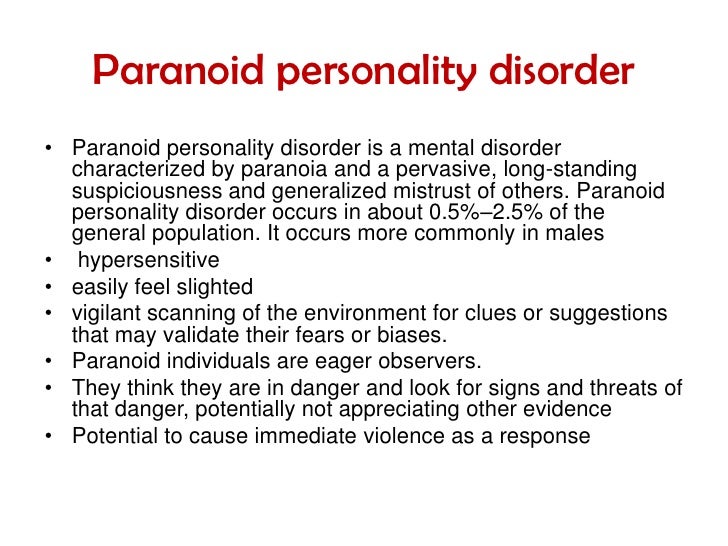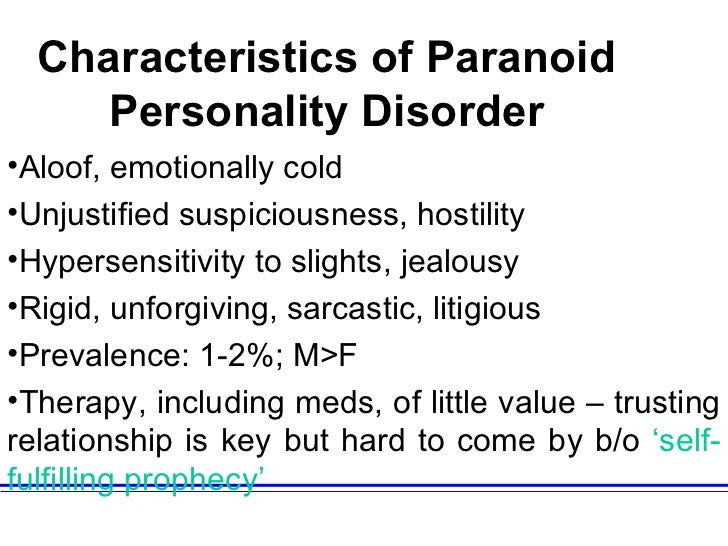This inconsistent parenting creates a high- stress environment that affects the childs brain development. Is seemingly always distrustful or suspicious without need.
 Paranoid Personality Disorder Paranoid Personality Disorder Is A Mental Disorder Characterized By Paranoia And A Pervasive Long Standing Suspiciousness And Generalized Mistrust Of Others Paranoid Personality Disorder Occurs In About 05 25 Of The
Paranoid Personality Disorder Paranoid Personality Disorder Is A Mental Disorder Characterized By Paranoia And A Pervasive Long Standing Suspiciousness And Generalized Mistrust Of Others Paranoid Personality Disorder Occurs In About 05 25 Of The
People with this personality disorder often feel suspicious about the motives of others or fear.

Characteristics of paranoid personality disorder. People with this personality disorder may be hypersensitive easily insulted and habitually relate to the world by vigilant scanning of the environment for clues or suggestions that may validate their fears or biases. The primary characteristic of this condition is a chronic and pervasive distrust and suspicion of others. People with PPD also suffer from.
Causes of paranoid personality disorder. Paranoid personality disorder may be first apparent in childhood or adolescence. A person with paranoid personality disorder may demonstrate considerable jealousy and anger in relationships.
Evoke interpersonal conflict 4. They can go from very emotional to cold and hostile in moments. Cause irritation or distress in others.
They include paranoid personality disorder schizoid personality disorder and schizotypal personality disorder. Consider the aforementioned words from the victims and examine these 20 behavioral traits that are often associated with the paranoid personality. Other symptoms of paranoid personality disorder include.
Paranoid Personality Disorder People with paranoid personality disorder are generally characterized by having a long-standing pattern of pervasive distrust and suspiciousness of others. Cluster A personality disorders are characterized by odd eccentric thinking or behavior. Paranoid personality disorder Paranoid personality disorder causes patterns of distrustful behavior.
No specific causes of this condition have been identified. Inflexible and maladaptive responses to stress 2. Unable to form social or professional relationships 3.
Paranoid personality disorder may also run in families with a history of psychotic disorders such as schizophrenia. Paranoid personality disorder PPD is one of a group of conditions called Cluster A or eccentric personality disorders. Parents with paranoid personality disorder are often emotionally inconsistent.
These affective responses can place a great strain on the nonparanoid spouse who may be characterized as rather passive in contrast to the controlling dominating partner with paranoid personality disorder. People who suffer prefer solitude have poor peer relationships social anxiety academic underachievement. An eccentric personality disorder means that the persons behavior may seem odd or unusual to others.
As a general rule people with personality disorders can be difficult to get along or maintain a healthy relationship with. Paranoid personality disorder PPD is a mental illness characterized by paranoid delusions and a pervasive long-standing suspiciousness and generalized mistrust of others. The essential characteristic of people with PPD is paranoia a relentless mistrust and suspicion of others without adequate reason to be suspicious.
Schizoid personality disorder ˈ s k ɪ t s ɔɪ d ˈ s k ɪ d z ɔɪ d often abbreviated as SPD or SzPD is a personality disorder characterized by a lack of interest in social relationships a tendency toward a solitary or sheltered lifestyle secretiveness emotional coldness detachment and apathyAffected individuals may be unable to form intimate attachments to others and. Personality disorders are psychiatric disorders characterized by chronic patterns of inner experience and behavior that are inflexible and present across a broad range of situations. They can be argumentative stubborn and frustrating if there is a lack.
Genetic traits familial factors and traumatic life events may however play a role in the development of the condition. Paranoid personality disorder PPD is one of a group of conditions called Cluster A personality disorders which involve odd or eccentric ways of thinking. Feelings that they are being lied to deceived or exploited by other people May believe that friends family and romantic partners are untrustworthy and unfaithful.
People with these disorders often appear odd or peculiar. Low self-esteem and negative self-image. Paranoid personality disorder PPD is a type of eccentric personality disorder.
Pervasive distrust and suspicion of others and their motives. Name the 4 common characteristics associated with patients who suffer from personality disorders.
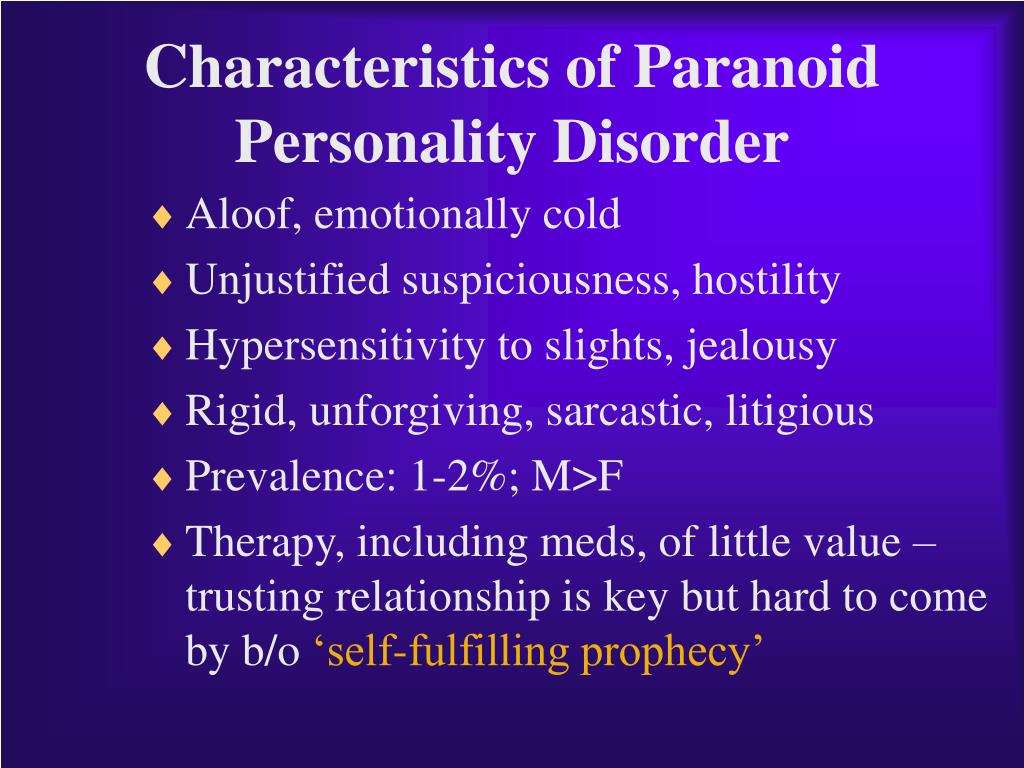 Ppt Personality Disorders Powerpoint Presentation Free Download Id 3826510
Ppt Personality Disorders Powerpoint Presentation Free Download Id 3826510
 Paranoid Personality Disorder Paranoid Personality Disorder Personality Disorder Interpersonal Relationship
Paranoid Personality Disorder Paranoid Personality Disorder Personality Disorder Interpersonal Relationship
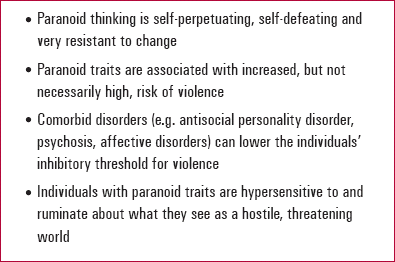 Are You Looking At Me Understanding And Managing Paranoid Personality Disorder Advances In Psychiatric Treatment Cambridge Core
Are You Looking At Me Understanding And Managing Paranoid Personality Disorder Advances In Psychiatric Treatment Cambridge Core
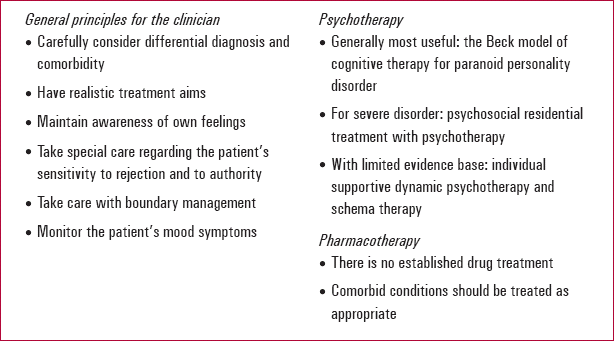 Are You Looking At Me Understanding And Managing Paranoid Personality Disorder Advances In Psychiatric Treatment Cambridge Core
Are You Looking At Me Understanding And Managing Paranoid Personality Disorder Advances In Psychiatric Treatment Cambridge Core
 Abnormal Psychology Third Canadian Edition Prepared By Tracy Vaillancourt Ph D Chapter 13 Personality Disorders Ppt Download
Abnormal Psychology Third Canadian Edition Prepared By Tracy Vaillancourt Ph D Chapter 13 Personality Disorders Ppt Download
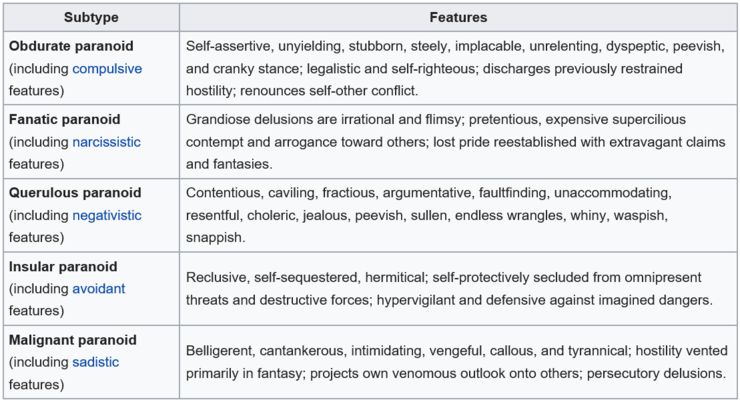 Paranoid Personality Disorder 네이버 블로그
Paranoid Personality Disorder 네이버 블로그
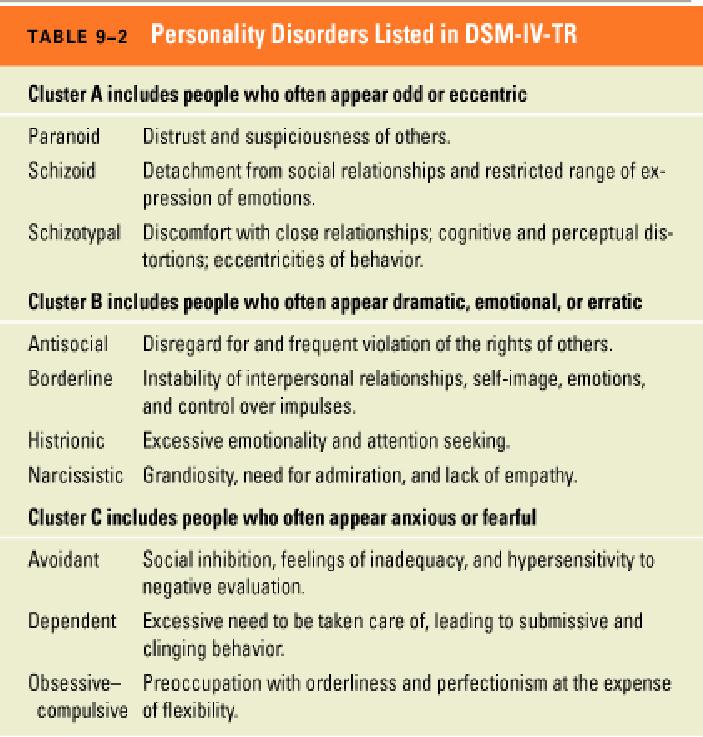 Personality Disorders Paranoid Personality Schizoid Personality The Diagnosis Abnormal Psychology Social Sciences Psychology
Personality Disorders Paranoid Personality Schizoid Personality The Diagnosis Abnormal Psychology Social Sciences Psychology
 Tarquin The Terrible Paranoid Personality Disorder
Tarquin The Terrible Paranoid Personality Disorder
 Chapter 3 Paranoid Personality Disorder Sage Publications
Chapter 3 Paranoid Personality Disorder Sage Publications
Paranoid Personality Disorder Personality Disorders
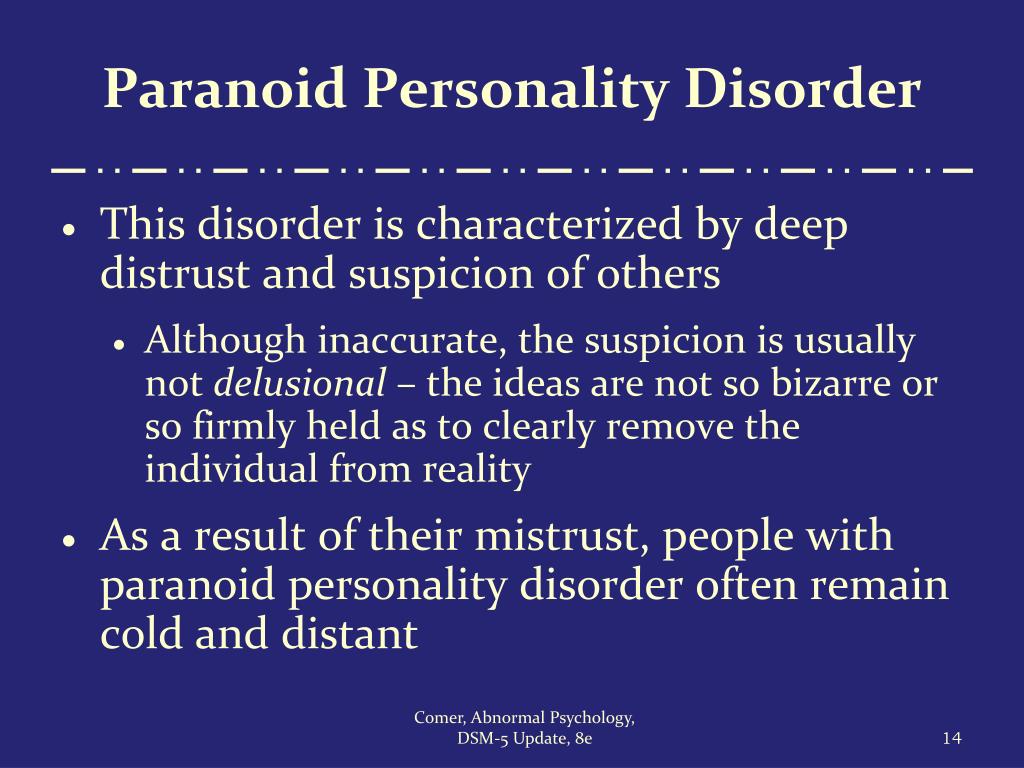 Ppt Personality Disorders Powerpoint Presentation Free Download Id 5807206
Ppt Personality Disorders Powerpoint Presentation Free Download Id 5807206

